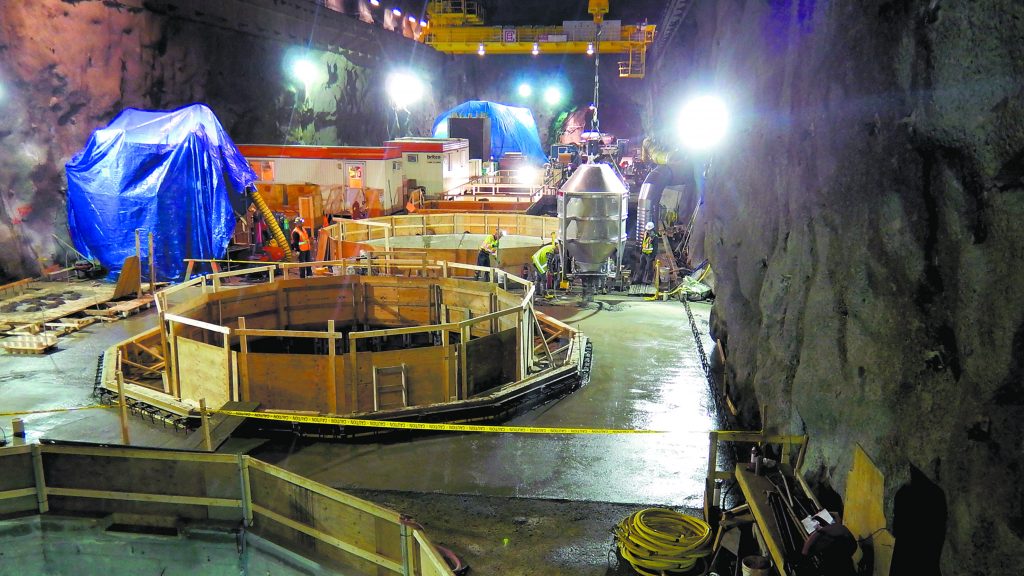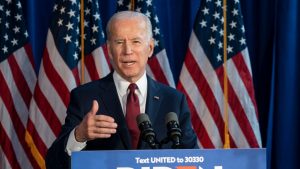Aecon Group Inc. president and CEO John Beck is looking to “set the record straight” about the company’s proposed $1.5-billion sale to a Chinese firm and why the Canadian Construction Association’s (CCA) stance against it, he says, is a misrepresentation based on opinion not fact.
Beck recently spoke to the CCA, of which Aecon is a member, during an in-camera session of a board meeting held at the association’s 100th annual conference in Banff, Alta.
In a post-conference interview with the Daily Commercial News and Journal of Commerce, Beck described his presentation in Banff as the “first opportunity to address the CCA on this matter.”
He said his first inclination of where the CCA stood occurred when he saw public statements made by former CCA chair Chris McNally about the association’s opposition “to government-owned or controlled entities competing for construction contracts.”
When it comes to the proposed transaction, which was announced in October 2017 and is currently undergoing an extensive federal government review, Beck said there are important clarifications that need to be made.
Aecon has agreed to be acquired by CCCC International Holding Limited (CCCI), which is a subsidiary of publicly traded China Communications Construction Company Limited (CCCC) whose largest shareholder is a state-owned enterprise.
“The state owns 64 per cent of CCCC, CCCI is a sub. There are some important shareholders including Canada Pension Plan and Caisse de depot, which are two of the largest pension plans in Canada…as well as Goldman Sachs and BlackRock in the U.S.,” Beck explained. “It (CCCC) is governed by the best governance requirements of the Hong Kong stock exchange, which has very strict requirements.
“There is absolutely no financial subsidization by the Chinese state of these companies. They stand on their own feet and they operate on their own merits and they borrow in the public markets around the world, just like we do.”
However, CCA president Mary Van Buren pointed out “at the end of the day 64 per cent ownership means you have control” and this meet’s the association’s threshold in standing by its policy of opposition to government-owned or controlled entities competing in the Canadian construction industry.
“Clearly, there’s no way around this, CCCI will be controlled by a Chinese state-owned enterprise,” she said.
We go back to the fact that it’s a state-controlled enterprise competing with Canadian private sector firms
— Mary Van Buren
Canadian Construction Association
In December 2017, Aecon announced it had received two regulatory permissions. One was a “no action” letter granting approval under the Canadian Competition Act and the other was approval from the National Development and Reform Commission, a Chinese economic planning regulator.
However, the purchase still requires regulatory approvals under the Investment Canada Act, which also includes a full national security review.
Beck was quick to point out the construction industry landscape is changing and this sale is falling in line with the current climate.
“We have, over the last 10 years, seen literally an invasion of the largest construction companies in the world. They have been aided and abetted, supported and begged by our governments in Canada to come into Canada to bid on these projects,” he explained. “Unfortunately, their only real qualification has been their experience in other international markets, including some third world countries I might say, and a big balance sheet.”
He said the sale ensures the company will have “the big balance sheet that governments are insisting we have to have in order to be able to bid on these projects” while also maintaining “the credibility, the established presence in Canada.” Post-acquisition, Beck stated the company will continue to be headquartered in Canada and led by Canadian management.
“It’s the right way to deal with the future direction of this industry,” he said. “I find that those companies that don’t accept the new realities and don’t join in to organize themselves to be able to participate in the future will be left out in the cold.”
Van Buren acknowledged the construction industry is changing, but added this situation is entirely different.
“If this were a foreign private firm, it’d be a different story,” she explained. “Secondly, there are many Canadian firms who are already actively participating in the P3s, so they have figured out a way to use their capacity to participate in large-scale projects.
“We go back to the fact that it’s a state-controlled enterprise competing with Canadian private sector firms.”
Beck stated that members within CCA objecting to the Aecon sale are “a very small number actually, they are not in this game at all.”
Van Buren said the CCA’s board and membership stand firmly behind its policy and are “very supportive of CCA’s efforts to advocate on their behalf. We will continue to monitor the situation and certainly encourage our members to make their views known as well.”
For Beck, some local construction associations and CCA members have made their views known and it differs from the CCA’s position.
“There were members of CCA, heads of some of the construction associations that are members of CCA, that after the fact — some were in the room, some weren’t — did send me a note saying now that they had all facts they wished that the CCA had not taken that position,” he stated.
But Van Buren made it known, “it’s never easy in an association because we are ultimately looking after what is in the best interest of the collective.”
Going forward, Beck said they will continue to answer any questions the federal government may have as it carries out the review.
“All I can tell you is the process is running its normal expected course. We haven’t been surprised by anything so far and we continue to co-operate fully with them,” he said.











Recent Comments
comments for this post are closed